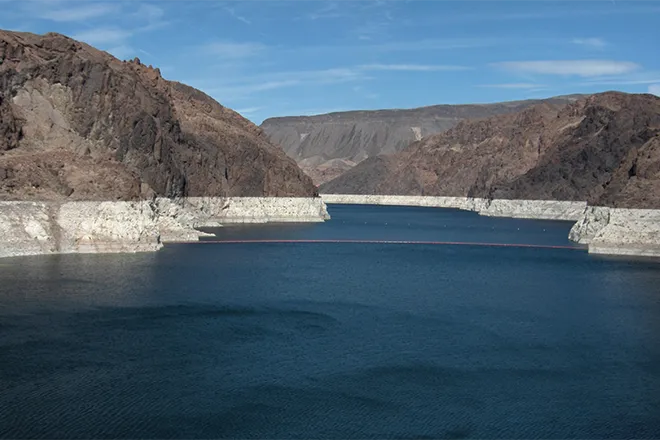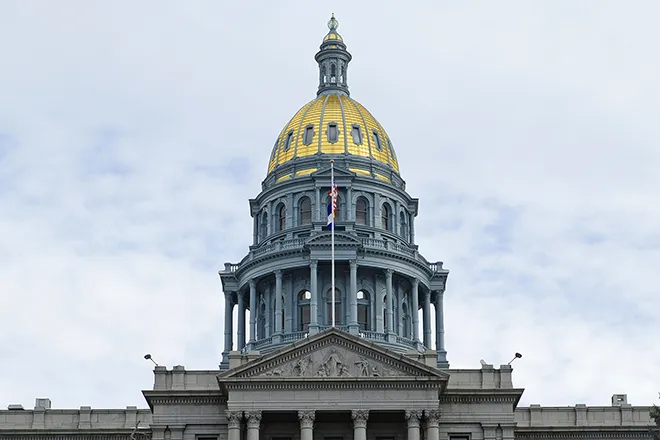
Daily Audio Newscast - June 26, 2025
© AlexLMX - iStock-823000260
Six minutes of news from around the nation.
DOJ Leader suggested violating court orders, whistle-blower says; UNLV students say Gov. Lombardo's recent veto is a 'slap in the face'; Montana group lifts queer and transgender resilience with latest zine; Jackson advocates fight water rate hike amid unresolved infrastructure crisis; Tax incentive cuts could stall rural Alaska green power.
Transcript
The Public News Service daily newscast, June the 26th, 2025.
I'm Mike Clifford.
A senior Justice Department official, Emil Bovee III, told subordinates he was willing to ignore court orders to fulfill Trump's aggressive deportation campaign, according to a whistleblower complaint, that from the New York Times.
They report the account by the dismissed lawyer, Erez Ruvini, paints a disturbing portrait of his final three weeks on the front lines of the Trump administration's legal effort to ship immigrants overseas, often with little notice or recourse.
In Ruvini's telling, Bovee discussed disregarding court orders, adding an expletive for emphasis, and other top law enforcement officials showed themselves ready to stonewall judges or lie to them to get their way.
Next to the Silver State were students affected by the 2023 campus shooting at UNLV that killed three people and injured three others, or calling out Republican Governor Joe Lombardo for his recent veto of Senate Bill 156.
The legislation would have established a special council for gun violence prevention under the Nevada Attorney General's office.
Ymir Cespedes Alvarado, with Youth Voice of Nevada, says while Lombardo's decision feels like a betrayal, the veto isn't an end to their ongoing battle to ensure Nevada is a safer place.
This bill was proposing a breach between the community and elected officials to make sure we can get rid of those political left or right wing messaging regarding gun violence.
He adds backers of the bill included grassroots organizers and UNLV students of diverse political backgrounds.
Lombardo said the bill took the wrong approach and adds the special council would have been granted broad authority.
I'm Alex Gonzalez reporting.
And as Pride Month winds down, a Montana group says the latest edition of its zine, Celebrating Queer and Transgender Folks, is still hot off the presses.
The fifth edition of Forward Montana's zine, titled The Sun Will Rise Again, contains poems, stories, photos, and more made by and for LGBTQ+ and Two-Spirit Montanans.
Zines are low-cost publications that are often printed at home and are accessible to various creators.
Lila Brown with the group says this edition was well-timed for Pride Month and more.
It also comes at the end of our Montana legislative session, where we saw a lot of attacks on queer and trans Montanans.
And we wanted to center resilience and joy and strength of the queer and trans community that Montana does have.
Montana state lawmakers brought at least two dozen bills targeting trans people this session in a lawsuit against the state over House Bill 121, which mandates specific bathroom use.
A Missoula County District Court judge in May granted plaintiffs a preliminary injunction during the lifetime of the case, writing that all Montanans will not be subject to the prying eyes of others or to governmental snooping or regulation.
I'm Kathleen Shannon.
This is Public News Service.
Next to Mississippi, where community leaders are pushing back against water rates increases proposed to pay off old infrastructure debt, arguing Jackson residents should not foot the bill for decades of systemic failures.
Brooke Floyd directs programs at the Jackson-based People's Advocacy Institute.
She says the city's water problems trace back to the 1960s.
She recalls the experience of her grandmother.
The five gallon big jugs, they were delivered to her every two weeks because she did not drink the water directly out of the faucet.
So this is a problem that Jacksonians have been dealing with for decades.
This is an age old problem.
You know, it just came to a head.
The current crisis peaked in August, 2022 when heavy rains collapsed the system, leaving residents without water for weeks.
I'm Tramell Gomes.
Meantime, disabled New Yorkers could lose access to vital services because of proposed federal Medicaid cuts.
The Congressional Budget Reconciliation Bill calls for around $800 billion in cuts to the program over a decade.
These could boot more than one and a half million New Yorkers off the program.
But Jeff Peters with the Center for Independence of the Disabled New York says people with disabilities could face greater impacts.
People can work because they have Medicaid.
People can get to work because they have Medicaid.
People can stay in good health because they have Medicaid.
Some people won't be able to receive the home care they need.
Some people will have to switch to different services.
He adds it's not easy for some people to switch to a new provider because of the trust they have with providers.
Other concerns are how these cuts could reduce a person's quality of life or ability to live independently.
Although the Senate is set to vote on the bill soon, it's not what people want.
Polls show 71 percent of voters want Congress to guarantee healthcare coverage for low-income people with Medicaid.
I'm Edwin J. Vieira.
Finally, potential cuts to alternative energy tax incentives could hobble green energy distribution in rural parts of Alaska.
Alaska's topography and extreme climate make getting electricity to Alaska's rural bush communities extremely challenging.
Chase Christie with Alaska Solar says four projects created by the Chugach Electric Association took a different approach to getting a lot of power to people in rural areas.
It's a lot of power, but I think even more significantly, it is extremely rapidly deployable.
Renewables and solar in particular are the most rapidly deployable ways to get kilowatt hours into the grid.
The tax breaks in the Biden-era Inflation Reduction Act were critical to making the Chugach projects a reality.
And Christie says if the incentives disappear, so could a good amount of investment in rural Alaska's green energy distribution sector.
Those cuts could fall squarely on rural power cooperative and municipal utilities, which service up to 90 percent of Alaska's residents.
I'm Mark Moran.
The IRA also helped power co-ops in the lower 48 states to modernize their power grids and boosted investments in clean energy.
This is Mike Clifford for Public News Service, member and listener supported.
Find our trust indicators at publicnewsservice.org.

















